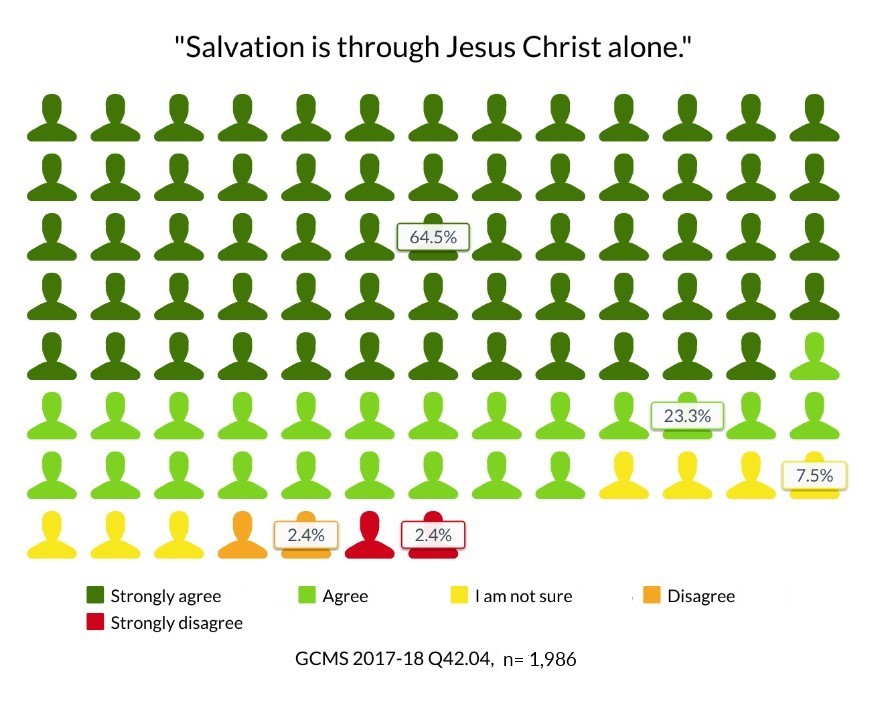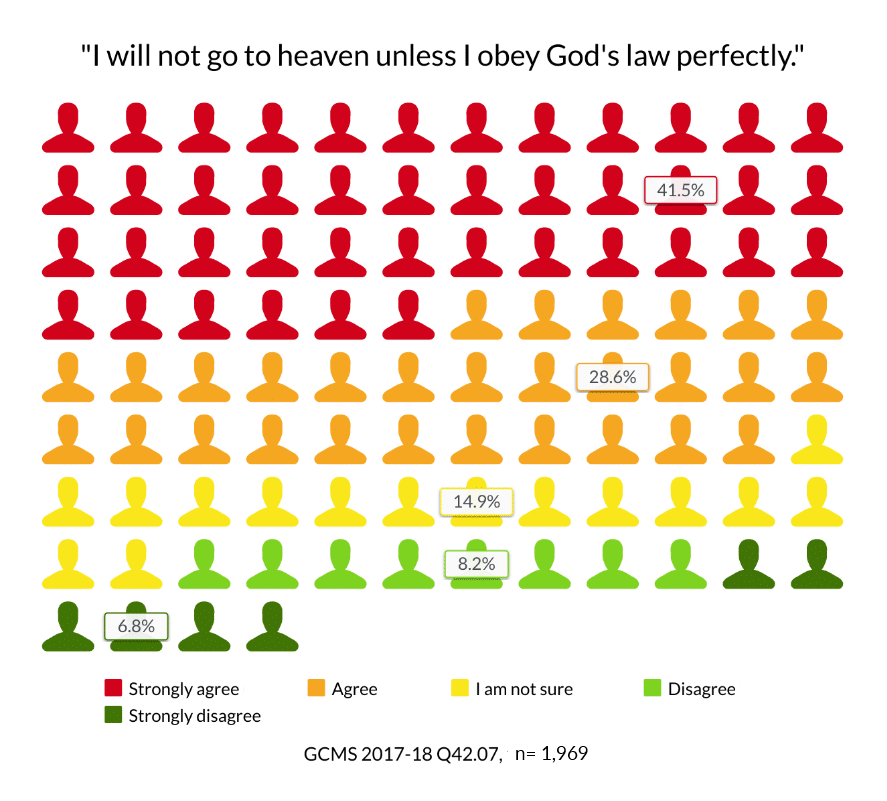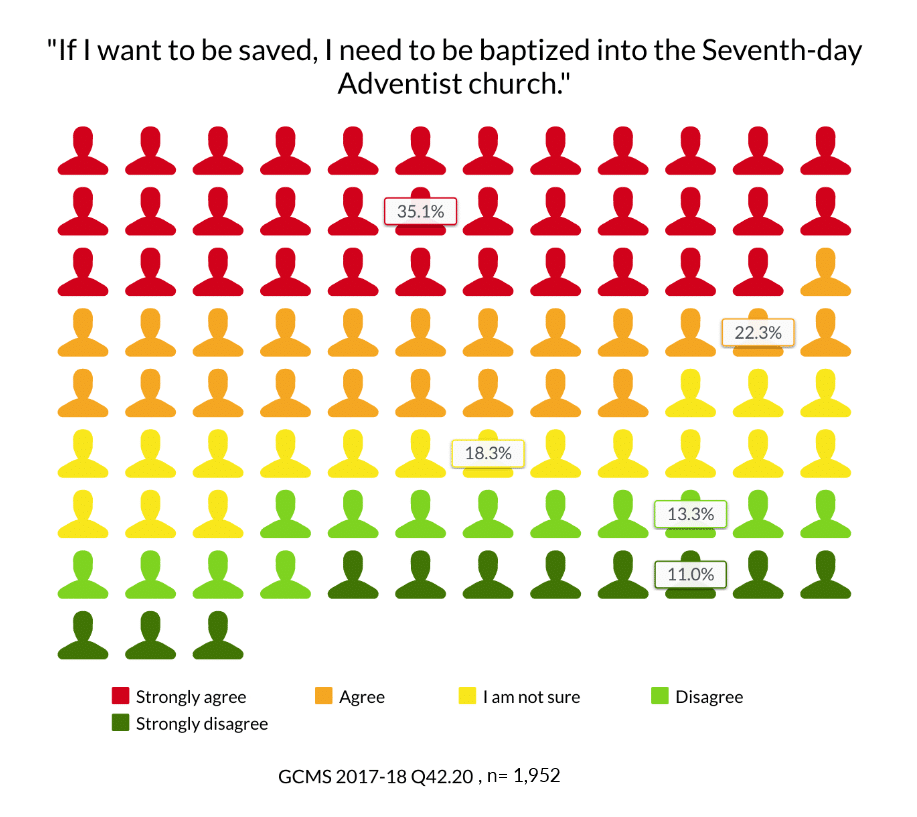The Adventist Church is founded upon 28 Fundamental Beliefs; these beliefs are intended to be adopted and internalized by all members of the Church. One important belief regards salvation, it reads:
In infinite love and mercy God made Christ, who knew no sin, to be sin for us, so that in Him we might be made the righteousness of God. Led by the Holy Spirit we sense our need, acknowledge our sinfulness, repent of our transgressions, and exercise faith in Jesus as Savior and Lord, Substitute and Example. This saving faith comes through the divine power of the Word and is the gift of God’s grace. Through Christ we are justified, adopted as God’s sons and daughters, and delivered from the lordship of sin. Through the Spirit we are born again and sanctified; the Spirit renews our minds, writes God’s law of love in our hearts, and we are given the power to live a holy life. Abiding in Him we become partakers of the divine nature and have the assurance of salvation now and in the judgment.
From this statement, it is clear that the Adventist Church believes in salvation through grace alone. However, one might question if this belief is internalized and fully understood by members–especially young people, the next generation of Adventists (which is much more at risk of dropping out)?
Our last blog examined a study that was conducted by the Institute of Church Ministry, in conjunction with the Center for Youth Evangelism, at the Chosen International Pathfinder Camporee (CIC) in 2019. This study included 1,024 participants, with a total of 993 surveys completed.
A portion of the survey contained questions regarding the topic of salvation. The results were, quite frankly, a bit concerning.
- When asked to respond to the statement, “I know that to be saved, I must live by God’s rules,” over four out of five (85%) of young people agreed to one extent or another.
- Only 16% of respondents strongly disagreed and 11% disagreed with the statement, “There is nothing I can do to earn salvation.” This implies that they believe there is something they can do to deserve the gift of salvation.
- Young people were asked to respond to the statement, “The more I follow Adventist standards, the more likely it is that I will be saved.” Over two out of five (44%) respondents agreed to one extent or another. However, 33% disagreed.
- Three out of five (59%) of young people agreed that “The way to be accepted by God is to try sincerely to live a good life.”
- Finally, when asked to respond to the statement, “The main emphasis of the gospel is on God’s rules for right living,” over half (55%) of young people agreed to one extent or another.
A similar study was conducted in 2014 at the Forever Faithful International Pathfinder Camporee (see our blog on Pathfinders’ Views on God’s Law and Salvation). The results of the 2019 CIC survey are higher on each point listed above. This shows a growing trend in the misunderstanding of this doctrine among young people.
In spite of these concerning views on salvation, there is some good news: young people appear to be confident of God’s love for them.
- When asked if they believe that God loves them, even when they sin, 95% of young people shared that they agree or strongly agree with this statement.
- An even higher number (97%) of young people agreed or strongly agreed with the statement, “I know that God loves me no matter what I do.”
It is uplifting to see that these figures are slightly higher than the results five years ago.
The 2017-18 Global Church Member Study also examined members’ views on salvation. When study respondents were asked to respond to the statement, “Salvation is through Jesus Christ alone,” 65% of children and youth strongly agreed, and another 23% agreed. It is encouraging that a vast majority of children and youth worldwide understand that salvation can only be attained through Jesus Christ!

However, when asked to respond to the statement, “I will not get to heaven unless I obey God’s law perfectly,” survey participants showed more legalistic views, similar to the CIC Pathfinder study. Forty-two percent of children and youth strongly agreed that they will not get to heaven unless they perfectly follow God’s laws, and another 29% agreed.

Additionally, when asked to respond to the statement, “If I am to be saved, I need to be baptized into the Seventh-day Adventist Church,” well over half (57%) agreed to one extent or another.

While it seems clear that young people worldwide understand the theory of salvation by grace, they do not apply this belief to their personal spiritual lives. This is concerning and makes one question from what source(s) they are receiving this message. Are they hearing such messages from the pulpit? Reading it in Adventist literature? Receiving this message from family and friends? Other church members? Is this spoken or simply “understood?” Could it be that this misunderstanding of salvation and the accompanying view of Adventism is why many young people are leaving the church? Those in positions of influence–pastors, teachers, etc.–must be certain that they are teaching and practicing the Adventist belief of salvation by grace and encouraging others to do the same. Let’s give more attention to this topic and its practical application in the preparation of young people for baptism.
We will not hide these truths from our children; we will tell the next generation about the glorious deeds of the LORD, about his power and his mighty wonders.
Psalm 78:4 NLT
Creado en colaboración con el Instituto del Ministerio de la Iglesia (Institute of Church Ministry).
Published by ASTR

